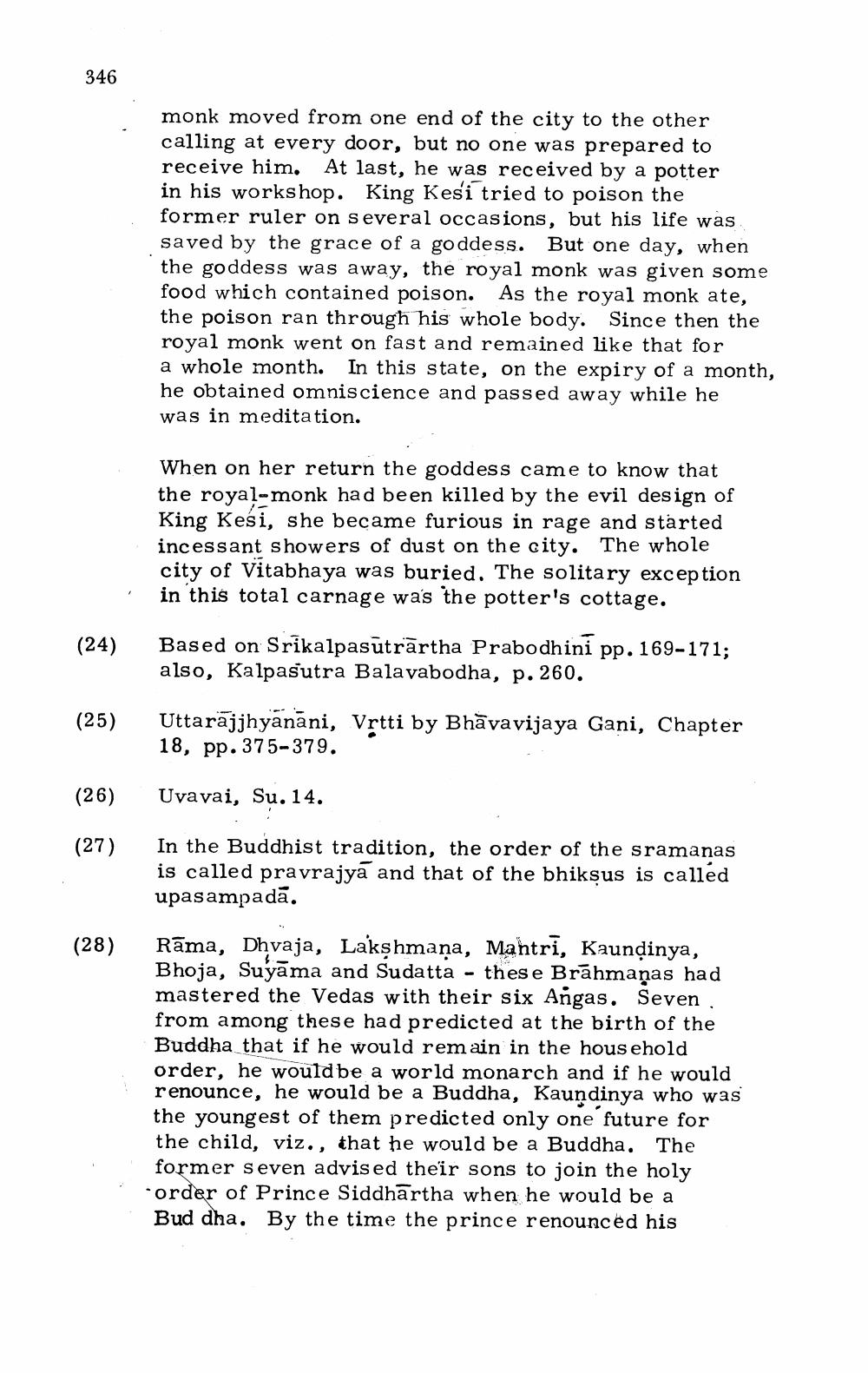________________
346
monk moved from one end of the city to the other calling at every door, but no one was prepared to receive him. At last, he was received by a potter in his workshop. King Kesi tried to poison the former ruler on several occasions, but his life was saved by the grace of a goddess. But one day, when the goddess was away, the royal monk was given some food which contained poison. As the royal monk ate, the poison ran through his whole body. Since then the royal monk went on fast and remained like that for a whole month. In this state, on the expiry of a month, he obtained omniscience and passed away while he was in meditation.
When on her return the goddess came to know that the royal-monk had been killed by the evil design of King Kesi, she became furious in rage and started incessant showers of dust on the city. The whole city of Vitabhaya was buried. The solitary exception in this total carnage was the potter's cottage.
(24)
Based on Srikalpasūtrārtha Prabodhini pp. 169-171; also, Kalpasutra Balayabodha, p. 260.
(25)
Uttarajjhyanāni, Vrtti by Bhāvavijaya Gani, Chapter 18, pp.375-379.
(26)
Uvavai, Su. 14.
(27)
In the Buddhist tradition, the order of the sramanas is called pravrajya and that of the bhiksus is called upasampada.
(28)
Rāma, Dhvaja, Lakshmana, Mantri, Kaundinya, Bhoja, Suyama and Sudatta - these Brāhmaṇas had mastered the Vedas with their six Angas. Seven. from among these had predicted at the birth of the Buddha that if he would remain in the household order, he would be a world monarch and if he would renounce, he would be a Buddha, Kaundinya who was the youngest of them predicted only one future for the child, viz., that he would be a Buddha, The former seven advised their sons to join the holy order of Prince Siddhartha when he would be a Bud dha. By the time the prince renounced his




